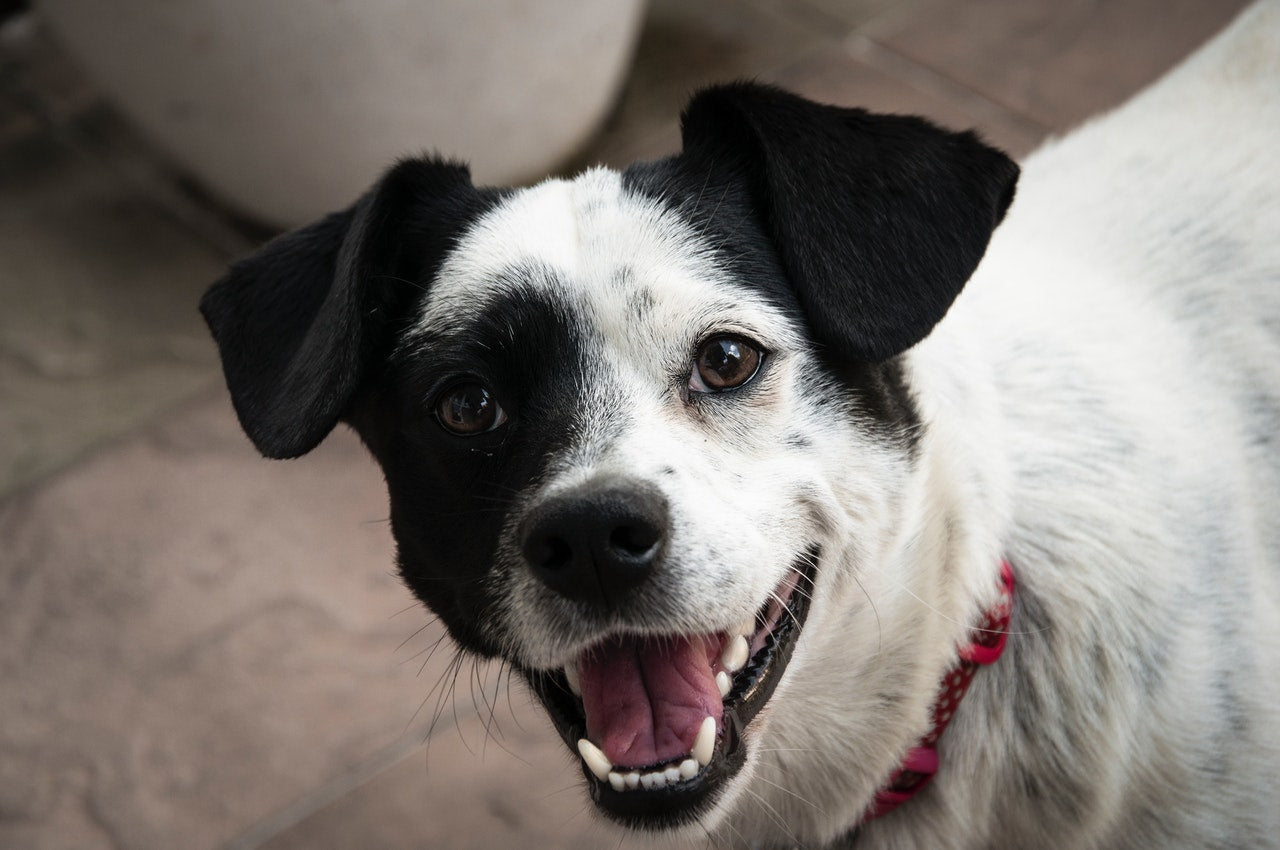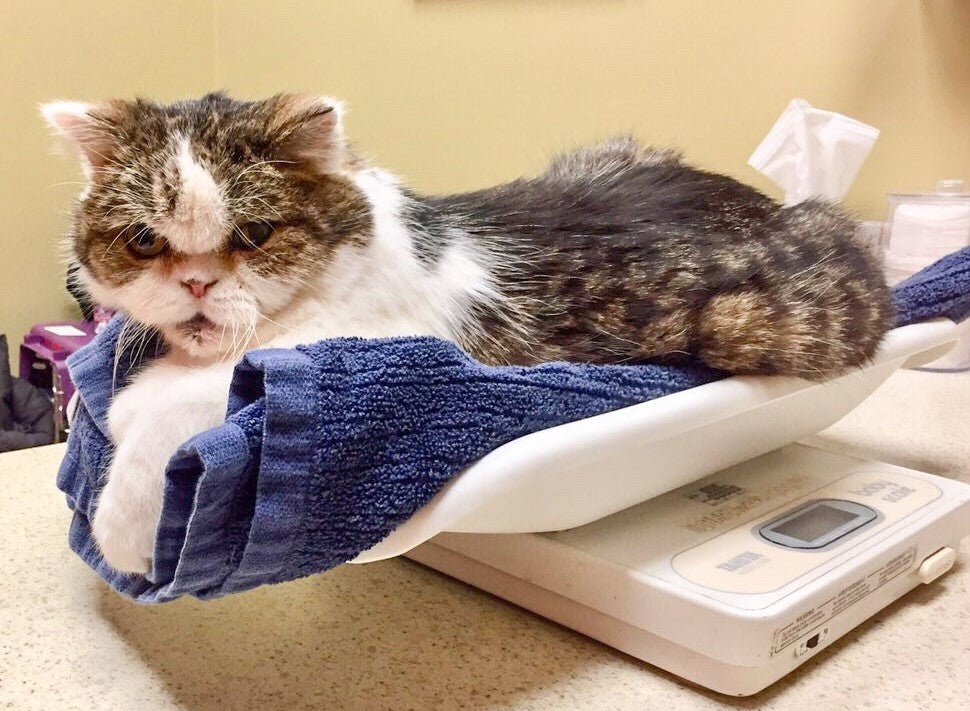Brachycephalic dogs are also known as short-nosed or flat-faced breeds. Well-loved examples include bulldogs, boxers, shih tzus, and pugs. But despite their popularity, brachycephalic dogs are prone to a variety of health problems that can make them challenging to care for.
In today's post we'll take a look at the health issues that can impact brachycephalic dogs. We'll also share some practical tips to help you keep your short-nosed dog safe, happy, and healthy.
Brachycephalic Syndrome
Brachycephalic syndrome, or brachycephalic airway obstructive syndrome (BAOS) is a disease of the upper respiratory system. It occurs in brachycephalic dogs as a result of their shortened skull bones.
Symptoms of brachycephalic syndrome include stenotic nares (narrow or collapsed nostrils), tracheal stenosis (an abnormally narrow windpipe), and an elongated soft palate that can extend into the throat. Although all short-nosed dogs are affected by brachycephalic syndrome to some degree, symptoms can range from harmless snorting to serious and life-threatening respiratory issues.
Everyday Care Tips
In this section of the post we'll share some simple tips to help you minimize the symptoms of brachycephalic syndrome and protect your dog's overall health.
Exercise
Over-exercising a brachycephalic dog can lead to potentially dangerous symptoms including breathing difficulties and collapsing or fainting. For this reason, it's important to limit exercise and avoid overexcitement.
Make sure to walk your dog at a gentle pace, and take plenty of breaks so they can rest and cool down. We also recommend using a harness instead of a collar to prevent restriction of the windpipe that can lead to breathing problems.

Hot Weather Safety
Brachycephalic dogs are prone to heat intolerance, so it's especially important to limit exercise during warm weather. On very hot days, it's best to keep your dog inside or walk them early or late in the day to avoid the worst of the heat.
Never leave your dog unattended outdoors and always make sure to provide plenty of fresh drinking water. It's also vital to monitor your pup for signs of heat exhaustion or heat stroke such as heavy panting, rapid heartbeat, extreme lethargy, and excessive thirst.
Weight Control
Obesity in brachycephalic dogs can exacerbate symptoms of brachycephalic syndrome. These include respiratory problems such as snoring and noisy breathing, as well as intolerance to heat and exercise. Always feed your dog a balanced, species-appropriate diet and avoid overfeeding. This will help control their weight and keep it within a healthy range.
Look for foods with a high-quality protein source as the main ingredient, and avoid those with low-quality filler ingredients such as corn, meat by-products, and artificial preservatives. Natural supplements such as coconut oil can also be added to your dog's diet to boost metabolism, suppress appetite, and aid weight loss.
Travel Safety
A spacious, sturdy, and well-ventilated travel carrier is an essential item for any owner of a brachycephalic dog. A good carrier will keep your dog comfortable and secure, whether you're taking a short trip to the vet or heading off on vacation.
If your pet is traveling in the cabin of a plane, make sure to purchase an airline-approved soft carrier that will keep them cool and comfortable. Please be aware that traveling in the cargo hold of a plane can be deadly for brachycephalic dogs, and should be avoided at all costs. In fact, recent statistics from the USDA have revealed that more than 50 percent of all dogs who died on US airliners were brachycephalic breeds.
General Health
Aside from respiratory problems caused by brachycephalic syndrome, short-nosed dogs are prone to a number of other health issues. Some of the most common of these are eye injuries, dental problems, and skin conditions.
Eye Care
Brachycephalic dogs have protruding eyes and shallow eye sockets that make it difficult for them to close their eyelids fully. For this reason, they are susceptible to a variety of eye problems including corneal damage, ulceration, and infection.
Brachycephalic dogs are also vulnerable to a medical condition known as proptosis (displacement of the eye). In severe cases, trauma to the head can cause the eyeball to become fully dislodged from its socket. Dogs with this condition will require emergency medical treatment to save their eyesight.
Other common eye problems in brachycephalic dogs include dry or watery eyes and entropion, a condition in which the eyelids curl inwards and cause irritation to the surface of the cornea.
Please speak to your veterinarian if your pet displays symptoms of eye problems such as redness, irritation, dry eyes, or excessive tearing. It is also important to schedule regular ophthalmic (eye) examinations with your veterinarian to check for problems with your dog's eyes.
Dental Care
Because of their flat face and shortened jaws, the teeth of brachycephalic dogs are often overcrowded. This can result in dental problems including plaque buildup and periodontal disease.
It's a good idea to start a teeth cleaning routine as early in your dog's life as possible. This will ensure that they adapt easily to having their teeth cleaned on a regular basis. Ideally you should aim to clean your pet's teeth daily to ensure good oral health.
We recommend using CocoTherapy therapeutic-grade coconut oil as a natural, organic toothpaste. Coconut oil is rich is lauric acid and caprylic acid – medium-chain fatty acids (MCFAs) that have antibacterial, antiviral, antifungal, and antimicrobial properties. This makes it very effective for maintaining your pet's oral health.
The simplest way to brush your dog's teeth is by applying a small amount of coconut oil to a moistened piece of gauze, then brush with gentle motions to clean the teeth and gums. Your dog will love the sweet taste of the oil, and the gauze will make the task of brushing a whole lot easier!
It's also important to arrange for your pet to have regular dental checkups with your veterinarian. This will ensure that any problems in your pet's mouth are picked up early on, before they pose a serious health concern.
Skin Care
Because of their shortened skulls, many brachycephalic dogs have deep facial wrinkles and skin folds. If you own a brachycephalic dog, regular cleaning of these areas is vital to prevent skin conditions such as skin fold dermatitis, pyometra, and yeast infections.
As part of your dog's regular grooming routine, use a wet washcloth to gently wipe away dirt and debris from their skin folds. We recommend against using wipes that contain chemicals as they can irritate your pet's skin.
After cleaning and drying the area, apply a small amount of therapeutic-grade coconut oil to your pet's facial folds. Lauric acid in coconut oil has antibacterial, antiviral, and antifungal properties. This makes it ideal for preventing and treating infections caused by viruses and overgrowth of yeast or bacteria.
Want to find out more about using coconut to protect your pet's skin? Check out our previous post, 6 Ways Coconut Oil Promotes Skin and Coat Health.



